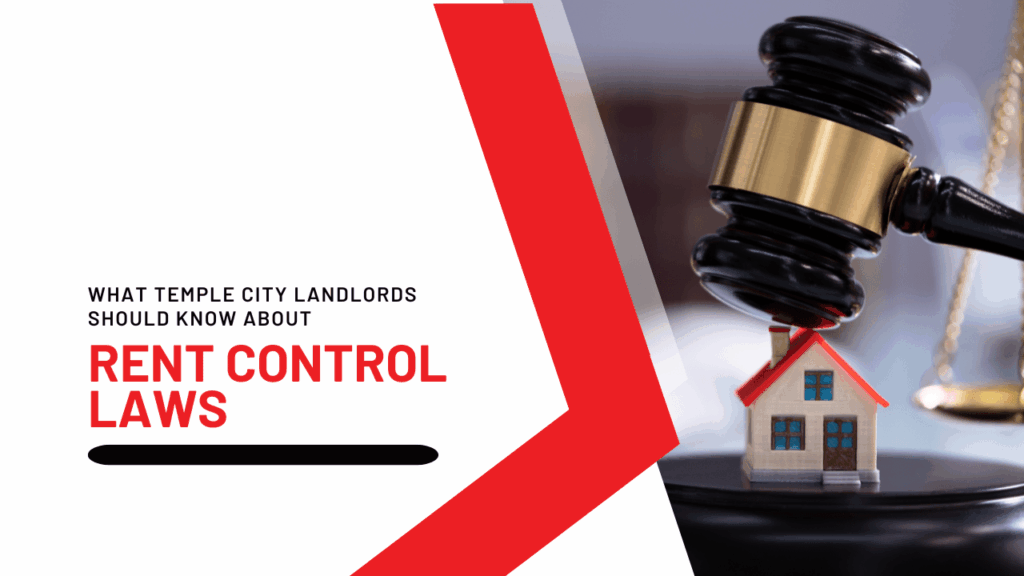
We never get tired of talking about rent control.
It’s not because we love the topic, it’s more because there’s just so much to talk about.
If you’re a Temple City landlord who is new to renting out properties in California, you may be uncertain about what rent control really means to you. It’s complex. It’s nuanced. It’s extremely important.
Here’s what you should know right now. And if you want to talk, please get in touch. This is not an area in which you want to make a mistake.
Temple City Rent Control Affects Most (not all) Rental Properties
As a landlord in Temple City, the first thing you need to know about rent control is whether your rental property is covered or exempt.
The Tenant Protection Act of 2019 is what established statewide rent control in California, and it went into effect on January 1, 2020. Nearly all multi-family properties in Temple City that were constructed at least 15 years ago are subject to the rent control laws.
Exemptions to this law include:
- Single-family homes and condos not owned by a Real Estate Investment Trust (REIT) or a corporation. If you’re an independent landlord renting out a single-family home, you do not have to follow statewide rent control laws.
- Those multi-family properties that received a certificate of occupancy within the last 15 years. In this case, your property is exempt until it has reached the point of being 15 years old.
- Mobile homes, dormitories, and hotels. Duplexes are also exempt from rent control laws when the owner of the property lives in one of the units.
Here’s something important to know: if your Temple City rental property is exempt from rent control, you must say so in your lease agreement. This is an important detail to check. If you have not updated your lease agreement since this law was passed, it’s really time to do that.
When Can You Raise the Rent?
Assuming you’re renting out a property that is subject to rent control laws, there are strict regulations on when you raise the rent and by how much.
Rent control laws allow landlords to raise the rent up to the allowed amount over a 12-month period. Most landlords will raise the rent one time during that 12-month period, and that’s at the end of the lease term, when you’re negotiating a renewal. While you can raise the rent at other times during the tenancy, you’d have to include that timing in your lease agreement, and you still could not raise the rent more than the allowed amount.
How Much Can You Raise the Rent?
 Rent increases are capped at 5% of the current rent plus the local Consumer Price Index (CPI), or 10% total, whichever is lower. The CPI is established annually. Right now, in the middle of 2025, the CPI is 3.8%, which means you cannot raise the rent by any more than 8.8%, total. This is for all leases that end on or before July 31, 2025.
Rent increases are capped at 5% of the current rent plus the local Consumer Price Index (CPI), or 10% total, whichever is lower. The CPI is established annually. Right now, in the middle of 2025, the CPI is 3.8%, which means you cannot raise the rent by any more than 8.8%, total. This is for all leases that end on or before July 31, 2025.
If you have questions about rent control, please contact us at ZenPro Property Management. This is an area of the law that is constantly scrutinized and updated, and we want to help you stay compliant.
